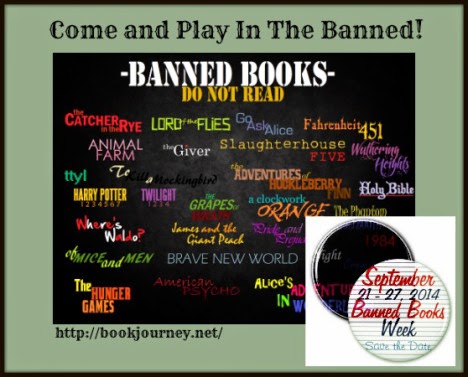| Online: | |
| Visits: | |
| Stories: |

| Story Views | |
| Now: | |
| Last Hour: | |
| Last 24 Hours: | |
| Total: | |
Banned Books Week 2014
This is Banned Books Week, a week set aside to celebrate the freedom of speech and the freedom to read whatever you want. Here's more information on Banned Books Week from the American Library Association (ALA).
It's also a great time to read for yourself some of the books that have been challenged or banned. Many of them are classics or highly regarded modern books, and by reading and reviewing them, we can bring attention to some great literature that should be available for all to read.
The way I see it is that it is perfectly OK not to like a book or even to be offended by a book – if that's the case, then you don't have to read it. However, it is not OK to ban a book and remove it from libraries or schools so that no one can read it. In the case of kids, I think that it should be the parents' role to decide what books are appropriate for their kids, not random citizens whose values may be entirely different than yours.
Often, books for children or teens are banned because they deal with difficult topics – violence, abuse, homosexuality (or any kind of sexuality), racism, etc. While parents can decide what is age-appropriate for their own kids, I think it's important for kids and teens to read books that deal with these kinds of difficult topics. All of this – and more – is a part of life, and kids and teens should be exposed to a wide range of real-life issues. Books are a safe way to bring these difficult topics up and can often spark useful discussions with parents, kids, classmates, and teachers.
The ALA has published lists of the most frequently banned books by decade, including the latest decade, 2000-2009. They also have lists of most frequently banned books for each year, from 2001 – 2013.
I like to use the top 100 Banned Books list from 2000 – 2009 to choose books to read to celebrate this week. Last year for Banned Books Week, I read Maya Angelou's I Know Why the Caged Bird Sings and The Perks of Being a Wallflower by Stephen Chbosky. Both were absolutely amazing books!
This year, I have already read Catcher in the Rye by J.D. Salinger (last time I read it, I was only 16) and am currently reading The Agonies of Alice by Phyllis Reynolds Naylor (this series is #2 in the top banned books of that decade). In this novel, Alice is only in 6th grade, so I also plan to read one of the later Alice books, Dangerously Alice, which takes place when she is ion 11th grade.
For more information, links, and fun ways to celebrate Banned Books Week, check out Sheila's blog, Book Journey.
And come back here for reviews of banned books later this week:
- Wednesday: Catcher in the Rye by J.D. Salinger
- Thursday: The Agonies of Alice by Phyllis Reynolds Naylor
How are you celebrating Banned Books week?
Source: http://bookbybook.blogspot.com/2014/09/banned-books-week-2014.html




